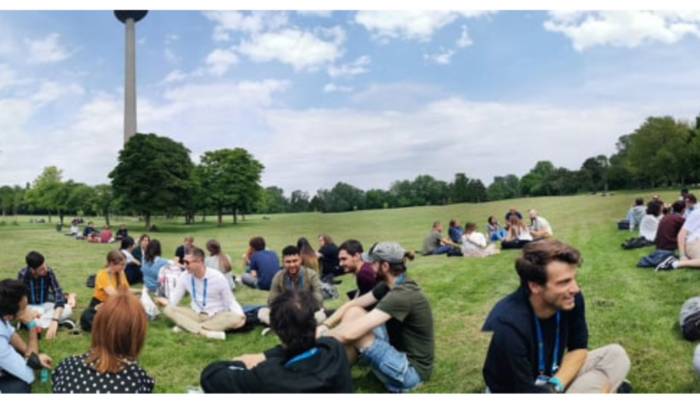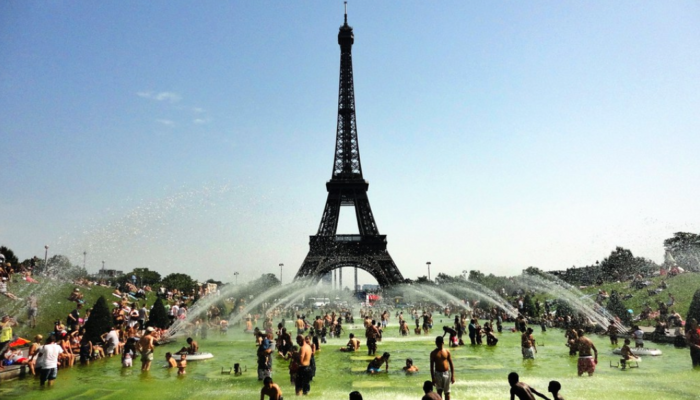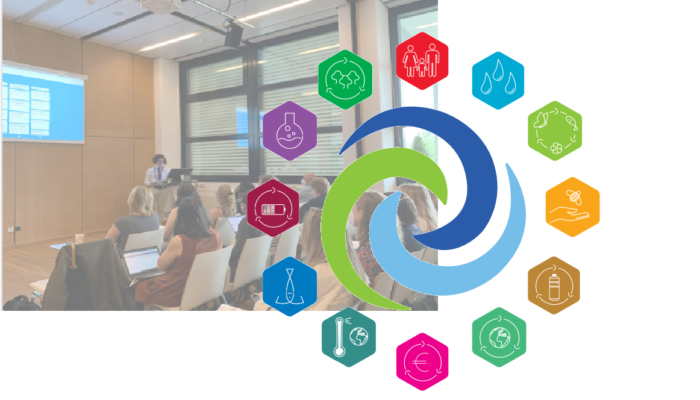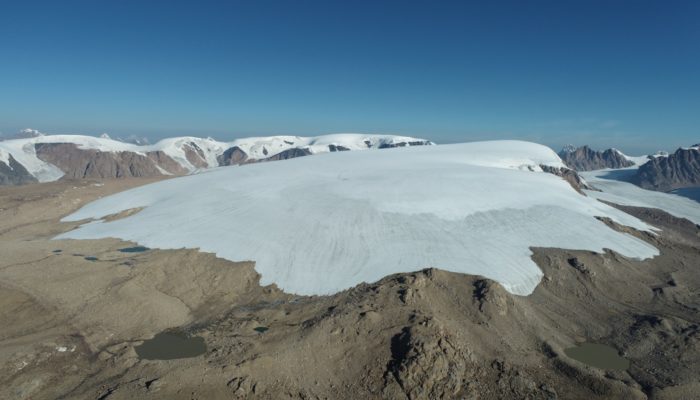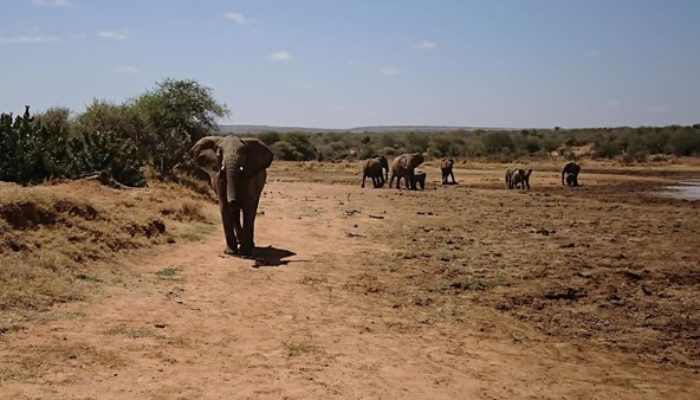The APS Topical Group on the Physics of Climate (APS-GPC) is excited to launch a new virtual monthly seminar series on climate physics and variability. These seminars are aimed at introducing the broader physics community (and math, engineering, and other communities) to the fundamentals of climate science as well as cutting-edge research and open questions in this field. APS invites you to attend ...[Read More]
If you didn't find what you was looking for try searching again.
GeoLog
The human side to research brought to life by scientific artist Kelly Stanford
Scientific artist Kelly Stanford has sure come a long way since we last spoke to her in 2019. The Manchester, UK-based science communicator is a Physical Geography PhD candidate from the University of Hull’s Energy and Environment Institute and winner of EGU’s Artist (not) in Residence in 2021. This year, at the Union’s General Assembly EGU22, Kelly continued her series of “Sci-portraits” (portrai ...[Read More]
Geodynamics
How to find your next job in Earth sciences?
An open and free platform for vacancy pages in Earth Sciences for academics
Hydrological Sciences
The Best of Both Worlds – An ECS Looks Back at the First Hybrid EGU
After two years of a pandemic-induced, online-only format, the General Assembly of the EGU was back in Vienna – with a twist. While thousands of scientists assembled in the Vienna International Center for stimulating discussions and sociable networking events, those who couldn’t come in person had the opportunity to attend remotely. It was the first EGU assembly to be held in this format. In ...[Read More]
Natural Hazards
Back at in-person conferencing, our experience at the EGU GA 2022
As part of the NH Division blog editorial team, we, Joana and Shreya, describe our experience at the EGU General Assembly (GA) 2022 (#EGU22), held in the Austria Centre in Vienna, from May 24th-28th. It was the first hybrid conference we attended in-person after two years of the pandemic, with a footfall of more than 7,000 people and about the same number joining virtually. It was an enrich ...[Read More]
Geodynamics
The Sassy Scientist – Natural Trainwrecks
We all somewhat agree that publishing in Nature is a recognition of the value of our research and of the usefulness of our academic career. It does not matter that “our” research topic was bestowed upon us by our supervisor. And it certainly matters not, that we want to leave academia next year. At least we’ll leave with a bang! We all want to publish on the almost-holy pages of ...[Read More]
Nonlinear Processes in Geosciences
A few reasons making the June 2022 French Heatwave too hot & too soon
Too hot, Too soon: the thermometer has reached unprecedented temperature for a month of June in France, with the 40°C mark crossed by Friday June 17 in part of France. The IPCC AR6 report now clearly states that the probability of heatwave events such as this one has increased by a factor 3 to 5 in the present climate with respect to a counterfactual world not affected by anthropogenic greenhouse ...[Read More]
GeoLog
GeoPolicy: All about the European Parliament Intergroup on ‘Climate Change, Biodiversity and Sustainable Development’
This month’s GeoPolicy blog features an interview with Ilias Grampas, Manager of the European Parliament Intergroup (EP) on ‘Climate Change, Biodiversity and Sustainable Development’ and Deputy Director of the European Bureau for Conservation and Development (EBCD). Ilias was kind enough to answer some of my burning questions about the role of the EP Intergroup in connecting Members of the Europea ...[Read More]
Cryospheric Sciences
Cryo Adventures – Droning on glaciers and ice caps in Kyrgyzstan
Drones are not only a cool toy to play with. They are also a useful instrument to monitor and study glaciers and ice caps. By taking thousands of images flying above the ice, we can make 3D models of ice masses at centimetre resolution. Using drones, we can now survey small to medium sized glaciers and ice caps in unprecedented detail. In recent years, we have conducted several surveys on glaciers ...[Read More]
Seismology
Vibrant ecosystems: Of rumbling elephants and seismic wildlife monitoring
Tarje Nissen-Meyer – Associate Professor of Geophysics at Oxford University, UK – shows how seismic signals of stomping in the savanna can be used to track elephants and other wildlife in Kenya. Our planet is at unrest. From butterfly wings to rock gigs, typhoons and megathrust earthquakes, mechanical wave disturbances permanently penetrate the Earth system across many orders of magnit ...[Read More]



